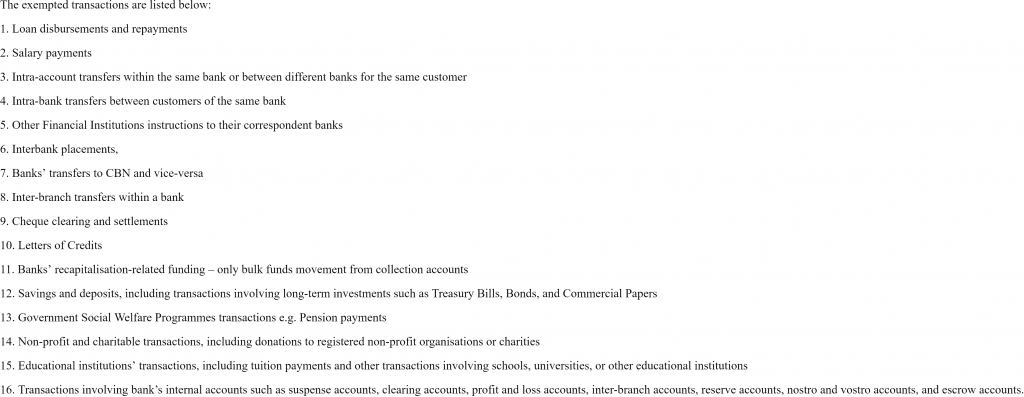
The Central Bank of Nigeria is introducing a new 0.5% fee on most electronic financial transactions conducted within the country. This “cybersecurity levy” aims to strengthen digital security measures and combat cyber threats targeting Nigeria’s banking systems.
While a laudable goal, the new fee risks burdening ordinary Nigerians who rely heavily on digital payments and transfers for everyday needs. From paying utility bills online to sending money to loved ones, these small but frequent transactions could see extra costs add up quickly for lower-income families.
However, the CBN has outlined 16 types of banking activities that will be exempt from the cybersecurity charge. This includes loan disbursements, salary payments, intra-bank transfers, transactions involving long-term investments, non-profit donations, educational payments, and certain internal bank account movements among others.
The exemptions provide some relief, but concerns remain over the levy’s impact on household finances and business operating costs, particularly for small enterprises conducting high volumes of digital transactions. There are worries it could stifle economic activities and digital inclusion efforts.
As the policy rolls out, the Central Bank must carefully balance enhancing cybersecurity with maintaining an accessible, affordable digital financial system. Protecting consumer interests and enabling inclusive economic participation should be prioritized alongside threat prevention.
Open consultation with consumer groups, businesses, and the financial sector is key to fine-tuning implementation details and hearing diverse perspectives. With thoughtful approach and continual review, perhaps an equilibrium can be struck – safeguarding Nigeria’s digital finance landscape without overburdening end-users.

